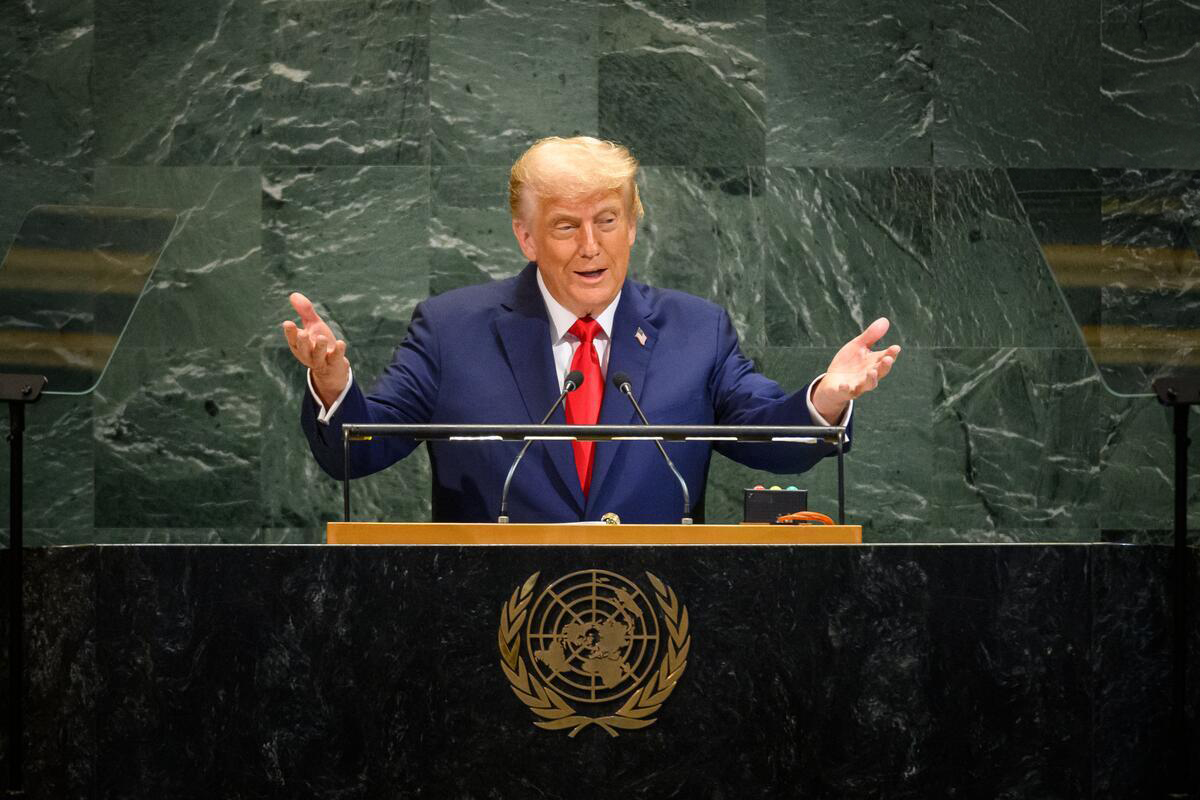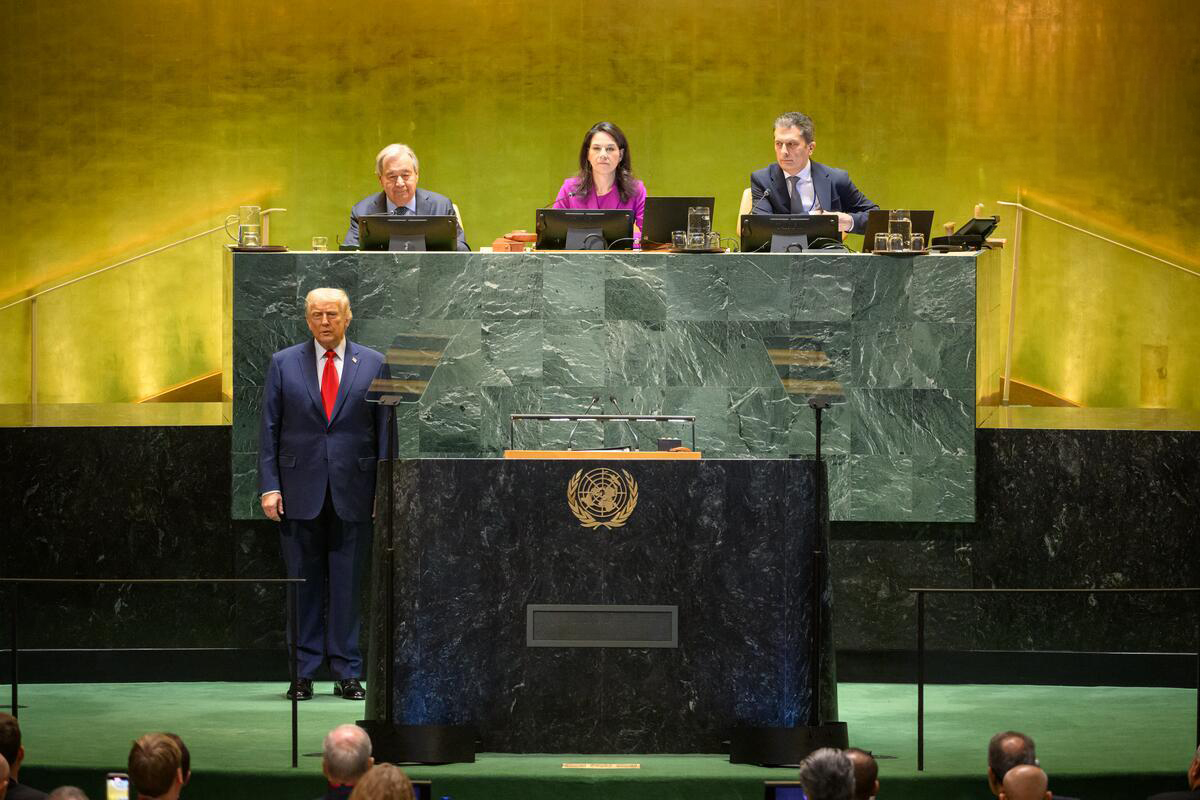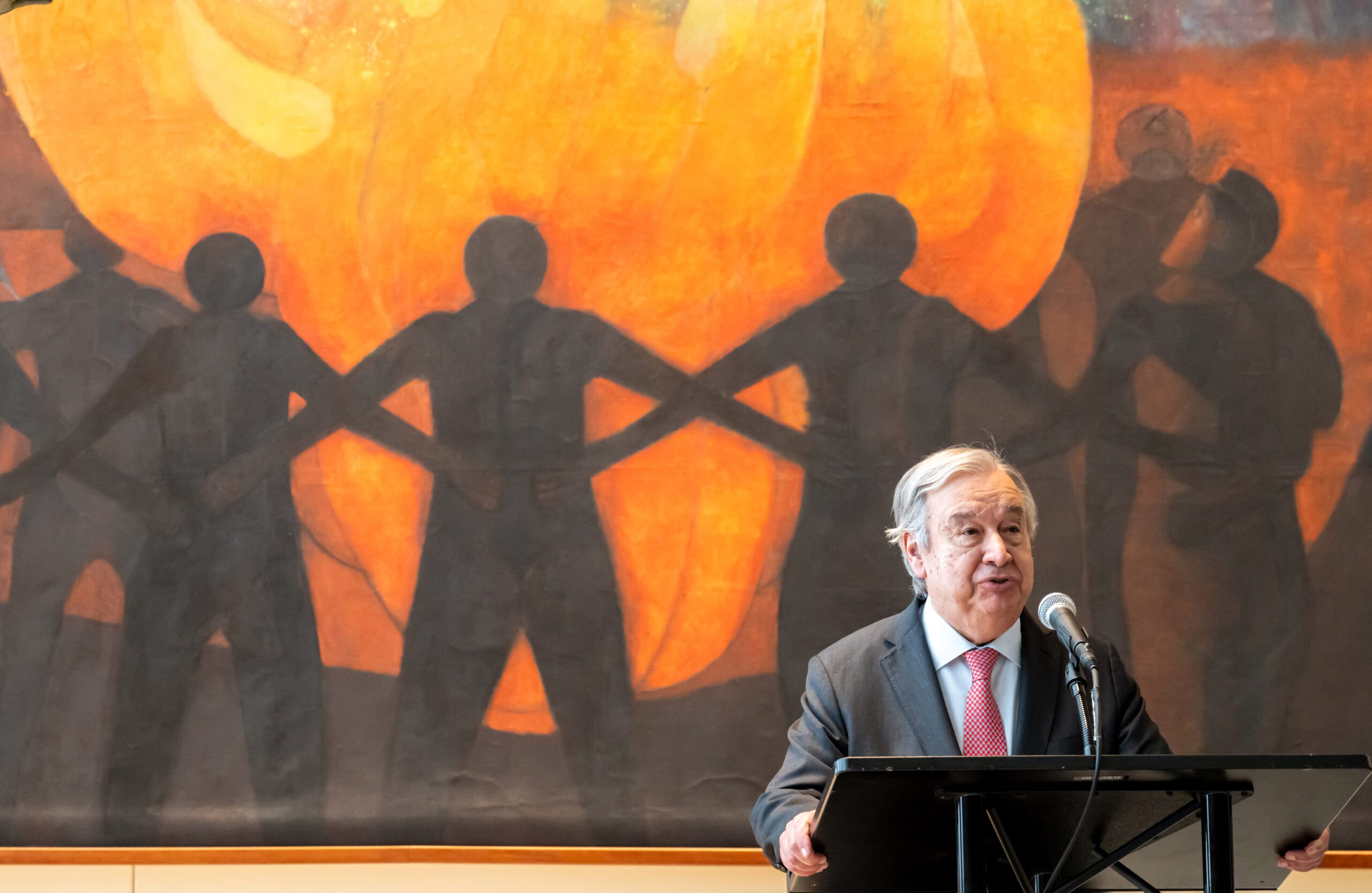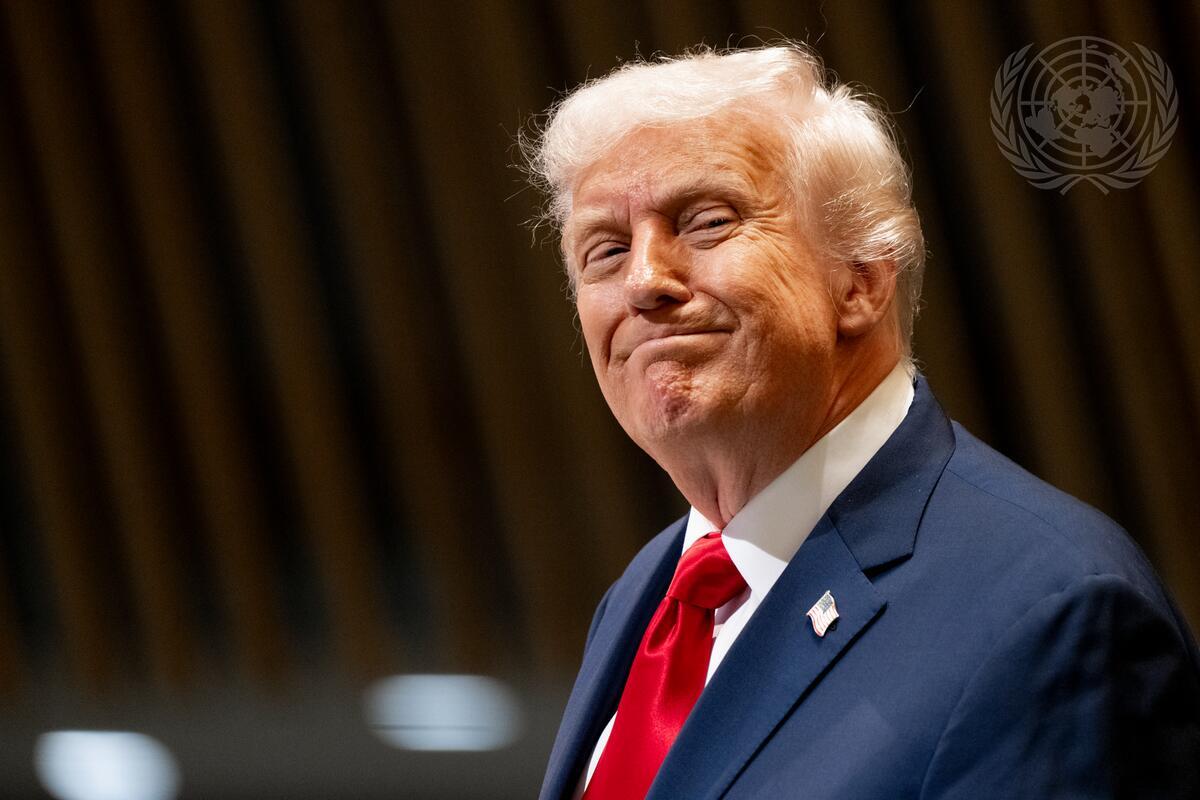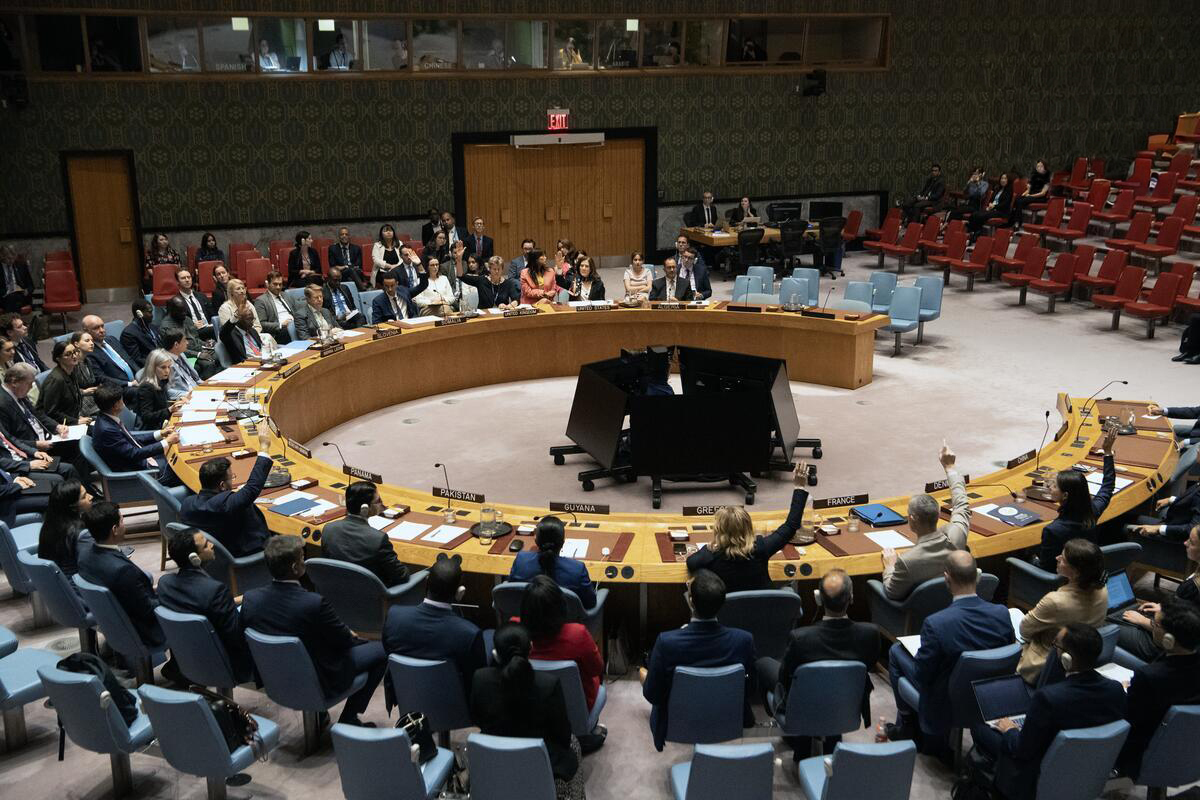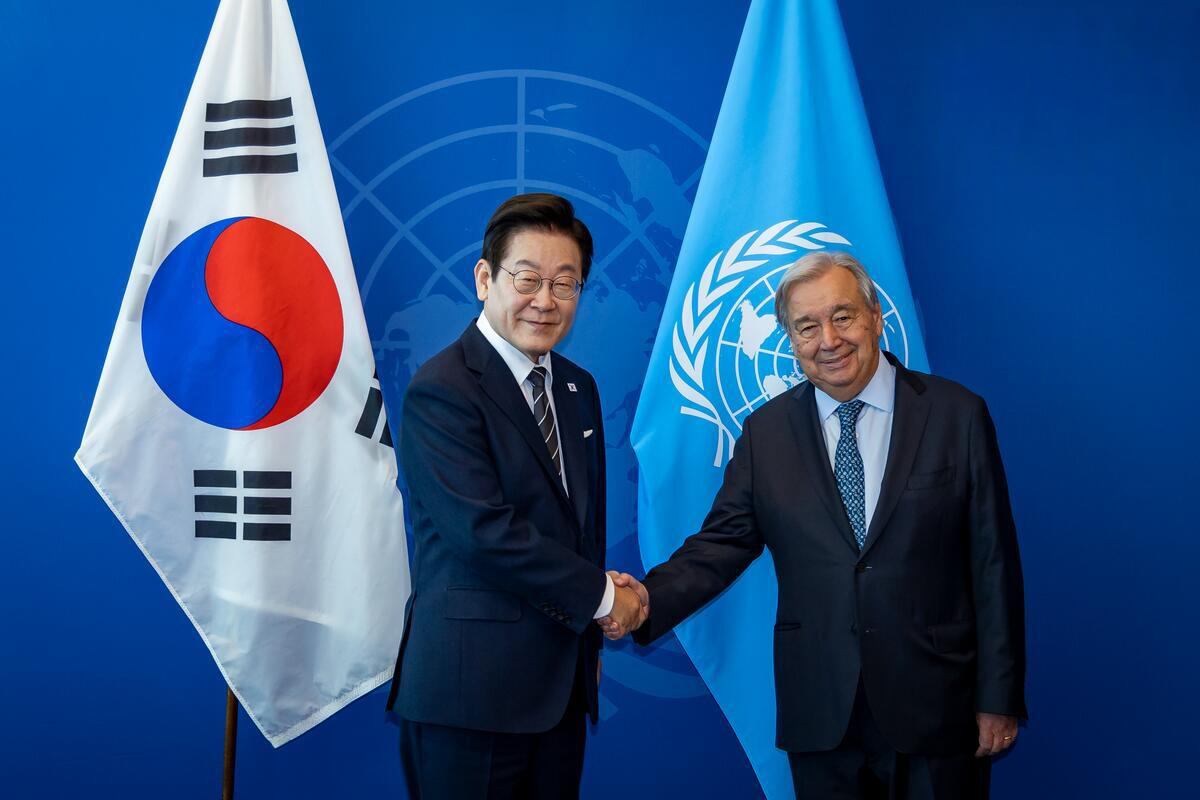The United Nations turned 80 this week, but the milestone felt less like a celebration than a stress test. From the green-marble podium of the General Assembly, leaders laid bare their visions for the future.
Secretary-General António Guterres pleaded for unity in the face of multiplying crises. General Assembly President Annalena Baerbock pressed for renewed faith in the UN Charter. And U.S. President Donald Trump countered with an unapologetic defense of sovereignty, tariffs, and American firepower.
The result: a day of speeches that revealed, as much as any summit in recent memory, the gulf between collective survival and muscular nationalism.
Guterres: “We Must Never Give Up”
The Secretary-General opened with an unflinching assessment. “We have entered an age of reckless disruption and relentless human suffering,” Guterres declared, citing smoke rising from bombed-out cities, hunger wielded as a weapon, seas swallowing coastlines, and truth corroded by disinformation.
“The pillars of peace and progress are buckling under the weight of impunity, inequality and indifference,” he warned.
As he laid out his five urgent choices — peace over war, dignity over repression, climate justice over fossil fuels, technology governed for humanity, and a stronger, better-funded UN — delegates from small island states and African nations applauded loudly, especially when he demanded climate action. The applause rang out like a moral endorsement, contrasting with the stiffer silence from some major powers’ benches.
“International cooperation is not naïve,” he insisted. “It is hard-headed pragmatism. No army can halt rising temperatures. No algorithm can rebuild trust once it is broken.”
Then came his vow, delivered slowly, his voice rising: “In a world of many choices, there is one choice we must never make: the choice to give up. We must never give up.”
Delegates rose to their feet in scattered standing ovations many from Europe, Latin America, and the Global South though notable absences included the U.S. and Russia.
World leaders converge in New York as António Guterres warns of global crises, Donald Trump defends tariffs, faith, and military power.
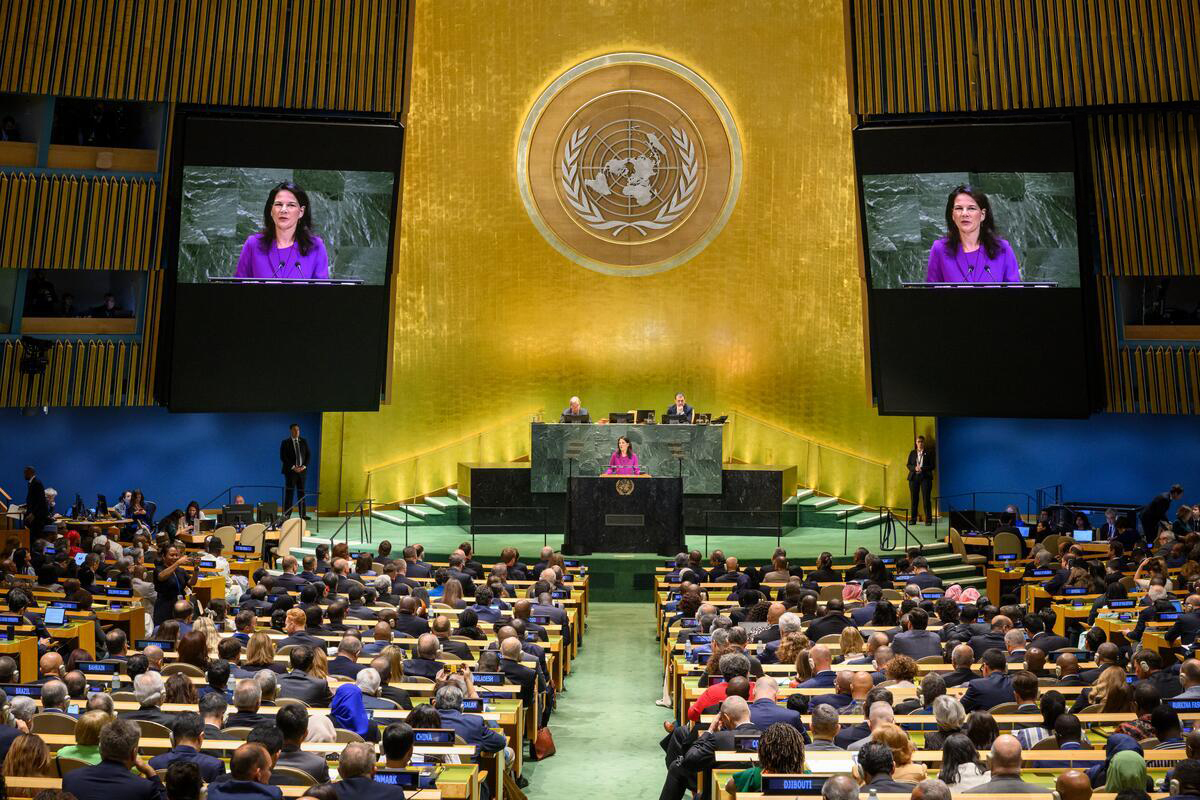
Baerbock: “Better Together”
If Guterres provided the alarm, General Assembly President Annalena Baerbock of Germany supplied the challenge.
“This should have been a year of celebration,” she said crisply. “Instead, we meet amid wars in Gaza, Ukraine, Haiti and beyond. So, we must ask: Where is the United Nations? Clearly, we have to do better.”
Her sharp rebuke earned nods from European allies, while several Middle Eastern delegates sat with arms folded.
Baerbock turned directly on the critics. “The Charter, our Charter, is only as strong as Member States’ willingness to uphold it. If we stopped doing the right thing, evil would prevail.”
Her theme “Better Together” landed strongest with Nordic and African delegations, who responded with warm applause. From China’s bench, silence.
Trump: “Tariffs Are a Defense Mechanism”
The hall shifted palpably when Donald Trump took the podium. Without teleprompter or notes, he leaned into his America-first instincts.
“In the United States we want trade and robust commerce with all nations,” he began. “But it must also be fair and reciprocal. That’s why the United States is now applying tariffs to other countries. We’ve used tariffs as a defense mechanism under the Trump administration.”
U.S. allies like Poland and Hungary clapped politely. European Union delegates exchanged glances. Latin American representatives, including Brazil, sat stone-faced — a reflection of new U.S. tariffs biting their economies.
“Tariffs will ensure that the system works for everyone and is sustainable into the future,” Trump continued.
He pivoted to religion: “Let us defend free speech and free expression. Let us protect religious liberty, including for the most persecuted religion on the planet today: It’s called Christianity.” Evangelical-leaning delegations applauded; many others remained quiet.
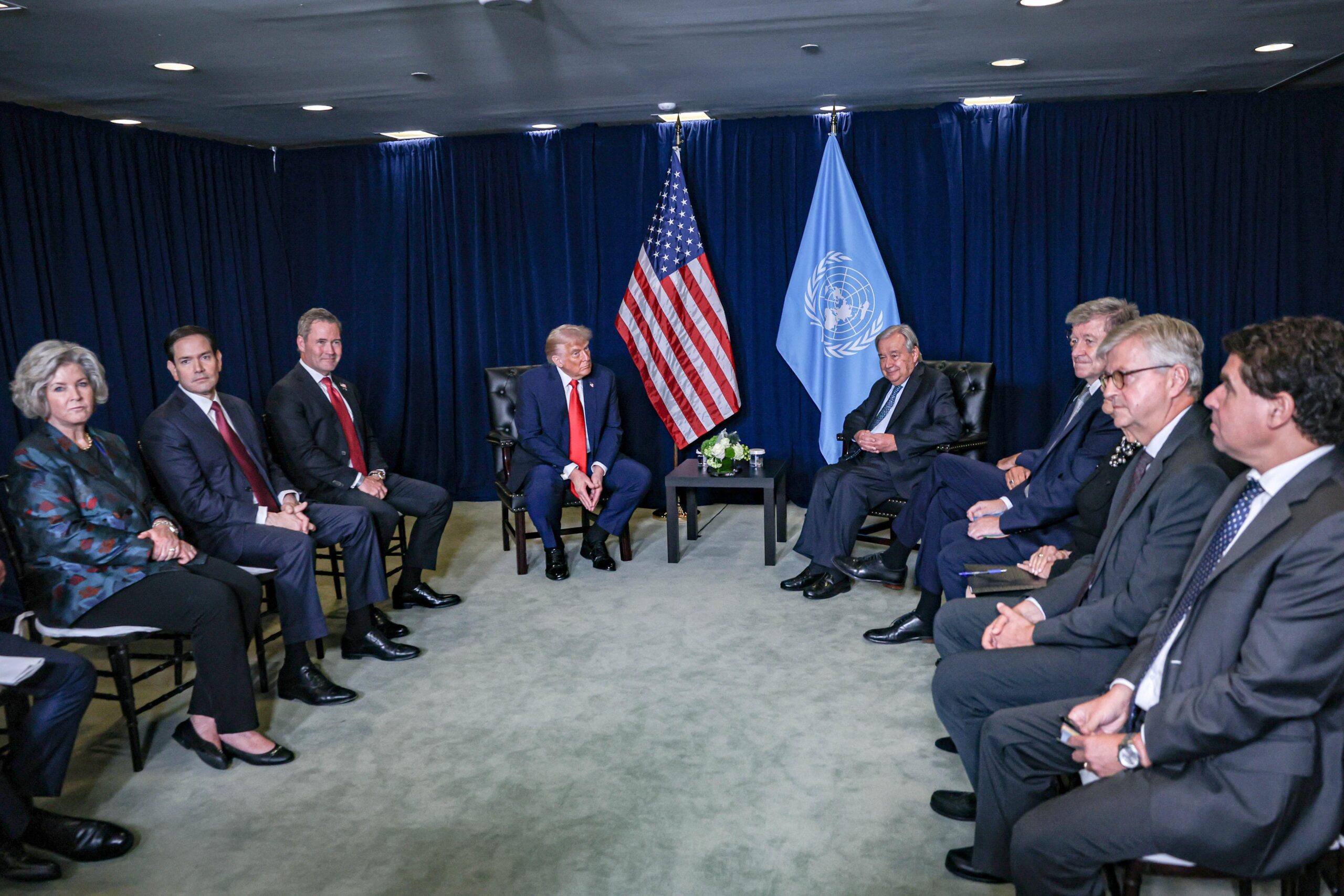
Then came his climate dismissal: “Renewable energy is a green energy scam. We don’t want cows anymore. I guess they want to kill all the cows.” Laughter broke out — some amused, some incredulous. European and Pacific island delegations sat in stony silence.
The mood hardened when Trump turned to security.
“We’ve recently begun using the supreme power of the United States military to destroy Venezuela terrorists and trafficking networks led by Nicolás Maduro,” he said. “Please be warned that we will blow you out of existence.”
Several Latin American delegates shifted uncomfortably; Venezuela’s envoy scribbled furiously in his notebook. The U.S. bench broke into applause.
Where Guterres had bemoaned that for every $1 invested in peace, $750 goes to weapons, Trump leaned on military muscle as deterrence.
Lula, Laughter, and Digressions
Ever the showman, Trump lightened the moment with an anecdote about meeting Brazilian President Luiz Inácio Lula da Silva backstage.
“We had excellent chemistry,” Trump quipped. “He liked me. I liked him. It’s a good sign.” Delegates chuckled, Brazilians did not.
From there, his speech veered: Barack Obama’s carbon footprint, crime in U.S. cities, UN headquarters renovations, even windmills. “They kill birds. They kill whales. They’re a disaster.”
He spoke nearly twice his allotted time. Applause from allies punctuated the speech; much of the chamber sat in silence, heads down, waiting for him to finish.
A Clash of Visions
The contrast could not have been sharper. Guterres and Baerbock framed the UN as indispensable a fragile “moral compass” and last line against chaos. Trump cast it as a theater for American grievances and power projection.
For Guterres, the answer is survival through solidarity. For Baerbock, resolve to be “better together.” For Trump, sovereignty protected by tariffs, faith, and firepower.
Eighty years on, the UN remains the same paradox it was at birth: both a beacon of shared survival and an arena for raw power politics. This week, in a chamber split between applause, silence, and nervous laughter, that paradox was on full display.

